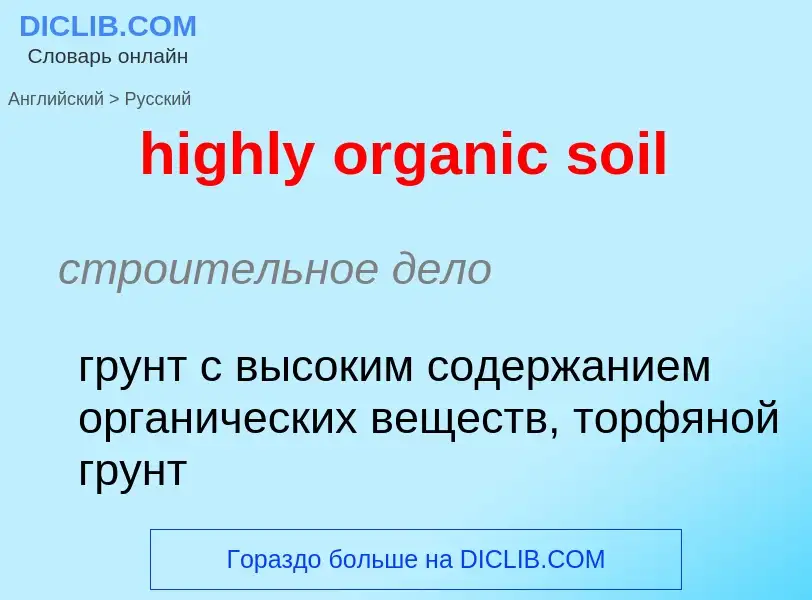Tradução e análise de palavras por inteligência artificial ChatGPT
Nesta página você pode obter uma análise detalhada de uma palavra ou frase, produzida usando a melhor tecnologia de inteligência artificial até o momento:
- como a palavra é usada
- frequência de uso
- é usado com mais frequência na fala oral ou escrita
- opções de tradução de palavras
- exemplos de uso (várias frases com tradução)
- etimologia
highly organic soil - tradução para russo
строительное дело
грунт с высоким содержанием органических веществ, торфяной грунт
общая лексика
почва
строительное дело
минеральный грунт органического происхождения
Definição
Wikipédia

Organic wine is wine made from grapes grown in accordance with the principles of organic farming, which excludes the use of artificial chemical fertilizers, pesticides, fungicides, and herbicides.
The consumption of organic wine grew at a rate of 3.7 percent over the year ending September 19, 2009, outpacing growth in the consumption of non-organic wine, which grew 2% during a similar period. There are an estimated 1,500–2,000 organic wine producers globally, including negociant labels, with more than 885 organic domains in France alone.
The legal definition of organic wine varies from country to country. The primary difference in how organic wine is defined relates to the use (or non-use) of preservatives, specifically sulfur (sulfur dioxide, sulfites, SO2), during the winemaking process.
In the US, no additional sulfites may be added to any organic product, including wine. In the EU, added sulfites are allowed in organic wine and determined by the kind of wine. Most other wine-producing countries do not have their own standards for organic wine and observe the standards of the nation importing the wine.
Another difference in the standards between the US and Europe is the additional label "Made with Organic Grapes." This label can be used in the US if the grapes used to make the wine are 100% certified organic, but the wine has added sulfites (up to 100 parts per million) or uses non-native yeasts. Europe does not have a comparable label.


![soil profile]], a notation firstly coined by [[Vasily Dokuchaev]] (1846–1903), the father of pedology. Here, A is the [[topsoil]]; B is a [[regolith]]; C is a [[saprolite]] (a less-weathered regolith); the bottom-most layer represents the [[bedrock]]. soil profile]], a notation firstly coined by [[Vasily Dokuchaev]] (1846–1903), the father of pedology. Here, A is the [[topsoil]]; B is a [[regolith]]; C is a [[saprolite]] (a less-weathered regolith); the bottom-most layer represents the [[bedrock]].](https://commons.wikimedia.org/wiki/Special:FilePath/Estructura-suelo.jpg?width=200)

